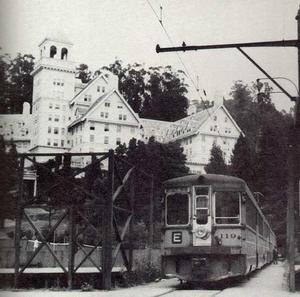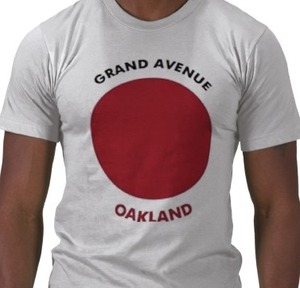tecznotes
Michal Migurski's notebook, listening post, and soapbox. Subscribe to ![]() this blog.
Check out the rest of my site as well.
this blog.
Check out the rest of my site as well.
Jun 16, 2010 7:25am
clipper futures
On June 16th 2010, the Bay Area Metropolitan Transportation Commission released Clipper, a rebranding of the original Translink payment card for public transportation. In the ensuing five years, Clipper has overtaken other forms of fare and payment to become the only remaining acceptable method of beeping a ride on Bay Area public transit. Starting with San Francisco's Muni and Alameda County Transit, later expanding to BART, Santa Clara Valley, San Mateo's SamTrans, Golden Gate Transit, Yellow Cab, Veterans Cab Co., and most recently the full complement of toll bridges including the Golden Gate, Bay Bridge, Richmond and San Mateo bridges thanks to Caltrans. Clipper is everywhere around the Bay.
It's difficult to remember now that just half a decade ago, local transit was a confusing jumble of mismatched schedules and fares. Riders no longer restrict themselves to monthly passes from a single agency, choosing instead to hop from one mode to another as their needs emerge. Unified payment makes most of this activity possible: the Clipper card has grown in importance along with the government ID and credit card. Initially envisioned as a purely a multi-agency payment card, Clipper has long since erased the functional distinctions among agencies thanks to the smooth thoughtlessness of synchronizing payments on all sides of the Bay.
Similar to the historical unification of competing streetcar companies under the umbrella of city-operated transportation authorities, we expect that late next year or possibly early 2017, the MTC Commissioners will retire the independent identities of SF Muni, AC Transit, Santa Clara VTA and SamTrans to be replaced by a unified "Bay Area Clipper" name. Most local observers view this as a pure formality, though it's expected that in keeping with its historic reluctance to participate in inter-agency plans, the BART Board will delay participation in the new name until 2018 at the earliest. They'll come around eventually.
Clipper has also managed to tap into a full range of data streams connected to urban transit, making them more interesting and valuable along the way. The fluidity and ease of motion we enjoy now is also made possible through the nearly ubiquitous availability up-to-the-minute locations for participating vehicles, made available from the agencies themselves through a public stream of real-time updates accessible to programmers and normal users alike. Buses and trains are almost universally equipped with location-tracking devices based on GPS and wireless signals, and a suite of applications from commercial, open-source, and philanthropic developers build on the predictive, route-finding data services published for every vehicle in the system. This has helped ease the pain of occasional budget cuts and service disruptions, giving users a way to minimize the amount of time they waste waiting around for their next ride.
Interestingly, the commercial providers of wi-fi, cell tower, and other "RF beacon" geolocation services have transitioned to something more like a regulated utility model. Originally established up to provide location lookup services for smartphones near the end of the 00's, the largest of these providers recently folded their own billing for Bay Area users into the Clipper system. The number of lookups you do for your physical location or finding an arrival time for a bus are simply charged to your card. Many users never even see these charges, since a large number of employers pick up the tab for employee accounts on a pre-tax basis.
More recently, concerns have surfaced around the privacy of data tracked through the Clipper servers. People are understandably jittery, after the numerous social networking data breach debacles of three years ago that seemingly turned a generation off of oversharing. MTC have gone to great pains to assure users of the system that their data is safe from "getting zucked", and they've begun to provide free personal monitoring services to users of Clipper. It's now possible to access to a complete, up-to-the-minute stream of your own card usage (including the geographic location of each beep) along with a record of access requests to that same data by parents, friends, mobile apps, credit reporting firms, or government agencies monitoring transportation use for oil-credit tax breaks. If someone's peeking at your transit history, you're the first one to know.
As Clipper begins its fifth year, we're seeing movement toward expanding the card into other uses around the Bay Area. Loose legal definitions of "transportation spending" have bike and rollerblade shops lobbying to allow repairs and maintenance to be charged to a Clipper account. The financial district congestion zone has announced a feasibility study for ditching its proprietary payment structure for Clipper. Even hardware companies have started to retool their smartchip-based door locks to optionally work with the system, bringing the card right into private homes. It seems too obvious to mention and too pervasive to notice, but seemingly everywhere you turn the one-time bus payment card has turned into a key to complete mobility and total access.
Let's try and not screw this one up.




Comments (3)
Wow, this all happened right under my nose. Amazing what happens when you rarely ride transit. Still, ordering my Clipper Card now!
Posted by Darren David on Friday, June 18 2010 8:04am UTC
What a great idea! Who needs competition and innovation when we can just have one big quasi-governmental agency run everything and provide complacent service, high prices and the same features year after year after year because, hey, what else are you going to use? Check in with AT&T circa 1982 to see how well that works out.
Posted by Jason on Thursday, June 24 2010 7:14am UTC
Jason, it seems pretty clear to me that mass transportation is one example of a service that government *should* be in the business of running, and I'm excited about Clipper because it seems like an opportunity to deliver one part of that service well. It's not even "quasi-governmental" I'm interested in here, but full-bore, pedal-to-the-metal honest-to-god Real Government. I don't get what you're saying about AT&T. Weren't they dismantled *by* government for anti-competitive practices?
Posted by Michal Migurski on Thursday, June 24 2010 7:25am UTC
Sorry, no new comments on old posts.